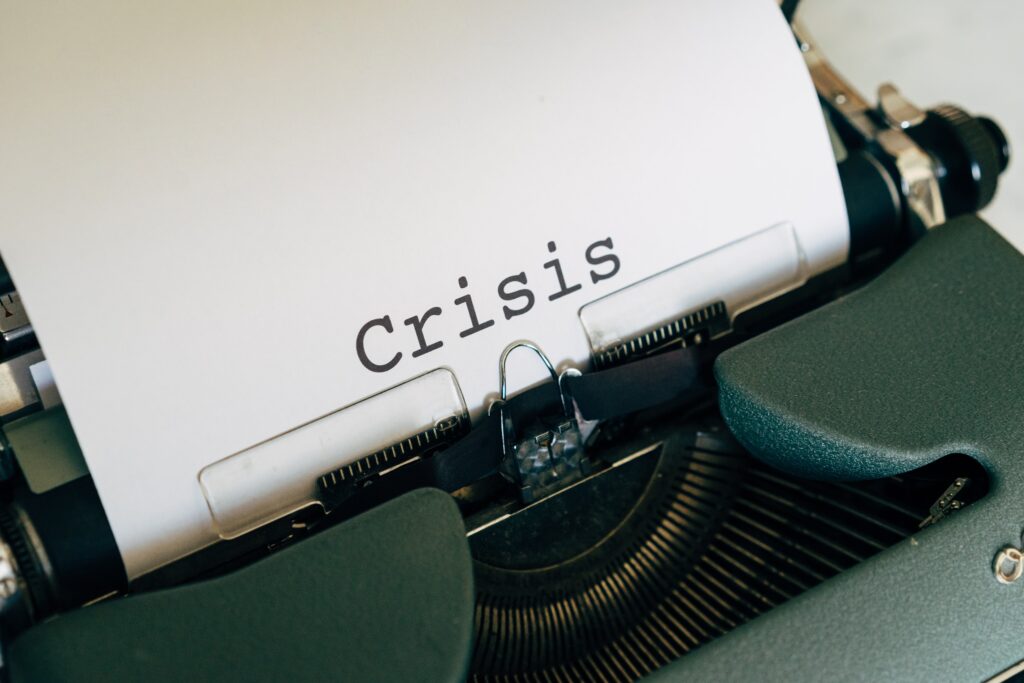
10 Steps to Creating an Effective Crisis PR Routine
Marketing
Posted 27 Mar 2023
Critical situations crop up again and again in our fast-paced everyday lives, which are heavily influenced by the media in our digitalized world. In the worst case, handling criticism and crises can quickly become a part of the daily routine. However, a crisis can be seen as a danger, but at the same time as an opportunity to react quickly and in advance. After all, efficient and, above all, proper communication is “vital” in such critical situations, especially when one’s own company is affected. But how should action be taken during a PR crisis to calm the situation and achieve the desired effect?
In order to overcome the PR crisis in a goal-oriented manner, it is important to minimize a possible loss of image. This minimization should be prioritized, and basic communication measures should be addressed. The graphic below shows the sequence of a successful way out of the crisis:

If a crisis is imminent, or is emerging, it is first important to acquire a relevant information base. All the facts surrounding the crisis should be regularly updated in order to strengthen internal and external trust as a company: Rumours should be verified or debunked as myths.
In addition, the next step is to develop messages, which should then be communicated in addition to the facts. The messages should express concern about what is happening and explain what the company is doing to address the crisis. In a crisis that involves or holds drastic implications for the public, guidance must be provided to the public. The use of drawings, graphs, or charts can help a company do this by illustrating their point of view on a potentially complicated process.
In order to represent this point of view and to pursue it truthfully, activity must be shown: It is necessary to go on the offence when a serious matter arises. At this point, it is important to communicate effectively to the outside world. A spokesperson who effectively communicates the information, knows the company’s internal communication plan, and appears trustworthy is indispensable to successfully counteract the crisis through PR. To contain the crisis, control is among the most important goods within the crisis PR. Control over the message as well as facts to be corrected are essential to direct the flow of information. As a control measure, regularly scheduled press conferences or reports are obligatory so that the information is broadcasted frequently and dependably.
Professionalism is required here, so that the seriousness of the company is shown to advantage. The motto is: keep calm. When it comes to external communications, such as responding to a shitstorm, there is power in staying calm. Even if the communication process is unpleasant, expertise must be present: Any comment worth saying should be reported, and thus officially released to the public.
In a crisis, it is important to respond quickly and fairly to the news media to avoid further “damage.” Cooperation with journalists, for example, can be beneficial in this regard. However, when communicating, it is important to observe and adhere to deadlines and to provide all reporters with the same information. The flow of information to the outside world can thus be coordinated more effectively. Keeping track of media calls and inquiries related to the company’s current dicey situation can also become helpful. This is because this information can be used later when creating the crisis communication plan and assessing the company’s internal and external response to the crisis.
Documenting through a crisis communication inventory what was said, by whom, and at what time can help reflect the crisis. In this way, a record of the event and how it was communicated is available. If another crisis occurs, the evaluation or this document can be a great support to be better prepared. A permanent revision as well as revolutionization of these conceptual steps is necessary so that future crises can be contained. The right approach to a crisis as well as the management of it by means of serious PR to the outside, represents a complex and multi-layered topic, in which it is worthwhile to interact with experts. So don’t hesitate for long and save your image by turning to experienced professionals who will take care of your crisis communication and help you step by step to overcome the crisis.

Communication Advisor at HBI Helga Bailey GmbH – International PR & MarCom
Elena Sauter has been supporting HBI in the areas of PR and marketing since 2022.
As a Communication Advisor, her responsibilities include the creation of professional articles & the conceptualization of social media postings. Furthermore, Elena is involved in directly assisting our client work.